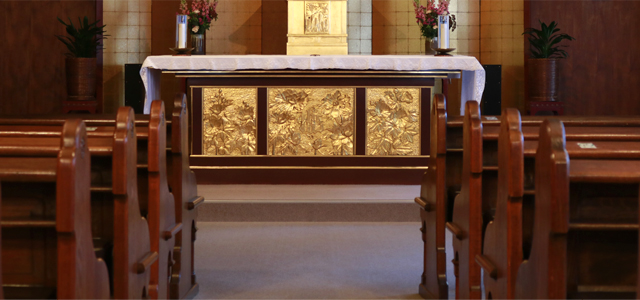
Catholic Q&A
Endo Shusaku writes that what he finds frustrating on reading the Bible, is the fact that he does not see any sexual problems in Jesus. Then again, had Jesus transcended such problems of the common people?
This appears to be an issue many people wonder about, and I often get similar questions. Yet, it is a hard question to answer. Is it because sex is often depicted in a warped manner in movies and by the media? The reason for this is because pious Christians tend to shy away from discussing the sexuality of Jesus, and besides, this issue involves also our own problems, and very personal ones as well, which we feel embarrassed to speak of in public.
First of all, to the query as to whether Jesus had any sexual compulsions, the answer would be, he certainly did. Any healthy human being is possessed of both an appetite for food as well as sexual leanings. However, unlike an appetite for food, which is meant merely to sustain the natural life of mankind, sex is not an instinct meant just for the preservation of the race. We may say that it is essentially the energy to love. I am of the view that the sexual desire is more deeply linked to the human personality than appetite.
Paul, while warning people of sexual disorders declares, “Food is meant for the stomach and the stomach for food–and God will destroy both one and the other. The body is not meant for sexual immorality, but for the Lord, and the Lord for the body. And God raised the Lord and will also raise us up by his power.” (1 Cor. 6:13~14). In other words, sex is a faculty for love, and love between human beings leads to divine love. Natural life may decay, but love is possessed of an eternal value.
So, what is vital here is to understand on what the energy of love in Jesus was aimed at. Since the Gospels are not history books in the modern sense of the term, we cannot get an exact knowledge from them as to what the historical Jesus was aware of, what he felt, and so on. However, the fact that Jesus devoted himself to proclaiming the Gospel of the Kingdom of God, forgetting in the process even to eat and sleep, the fact that he had no home to live in nor time to eat (Mark 4:20, 6:31), the fact that he was reported to have lost his mind and that his relatives were worried about him (Mark 31) and so on, are all issues that appear to be certain. The energy of love that resided in Jesus as a human being, was totally consumed in love for God and mankind. I think it is safe to say that the life of Jesus was a life that was burned out for love.
Second, regarding our own problems, we cannot say the Bible gives no answer whatsoever to the matter of sexuality. Paul describes the antinomy within himself as follows. “For we know that the law is spiritual, but I am of the flesh, sold under sin. For I do not understand my own actions. For I do not do what I want, but I do the very thing I hate.” (Romans 7:14~15). Of course, to interpret this term as referring to sexual concerns, may be too narrow a view. Nevertheless, those having experience of the chaotic, and sometimes irresistibly damaging power of sexual desire, had no doubt sensed within themselves this terrifying cry of Paul. This is because People understand the words of the Bible in the context of their own life experiences.
On another occasion, Paul wrote the following sentence. “Therefore, in order to keep me from becoming conceited, I was given a thorn in my flesh, a messenger of Satan, to torment me.” (2 Cor. 12:7). Paul states that he thrice requested the Lord to take this thorn away, but since he received the assurance of the Lord that His grace was sufficient for him, Paul ventured to accept his weakness as it was. (verses 8~10). What actually was Paul’s experience regarding the “thorn in the flesh”? This too has been greatly debated by biblical scholars and so it is not clear. Nevertheless we can at least partly perhaps get a grasp of it, by comparing it with the crises and failings that we ourselves have experienced in the past.
